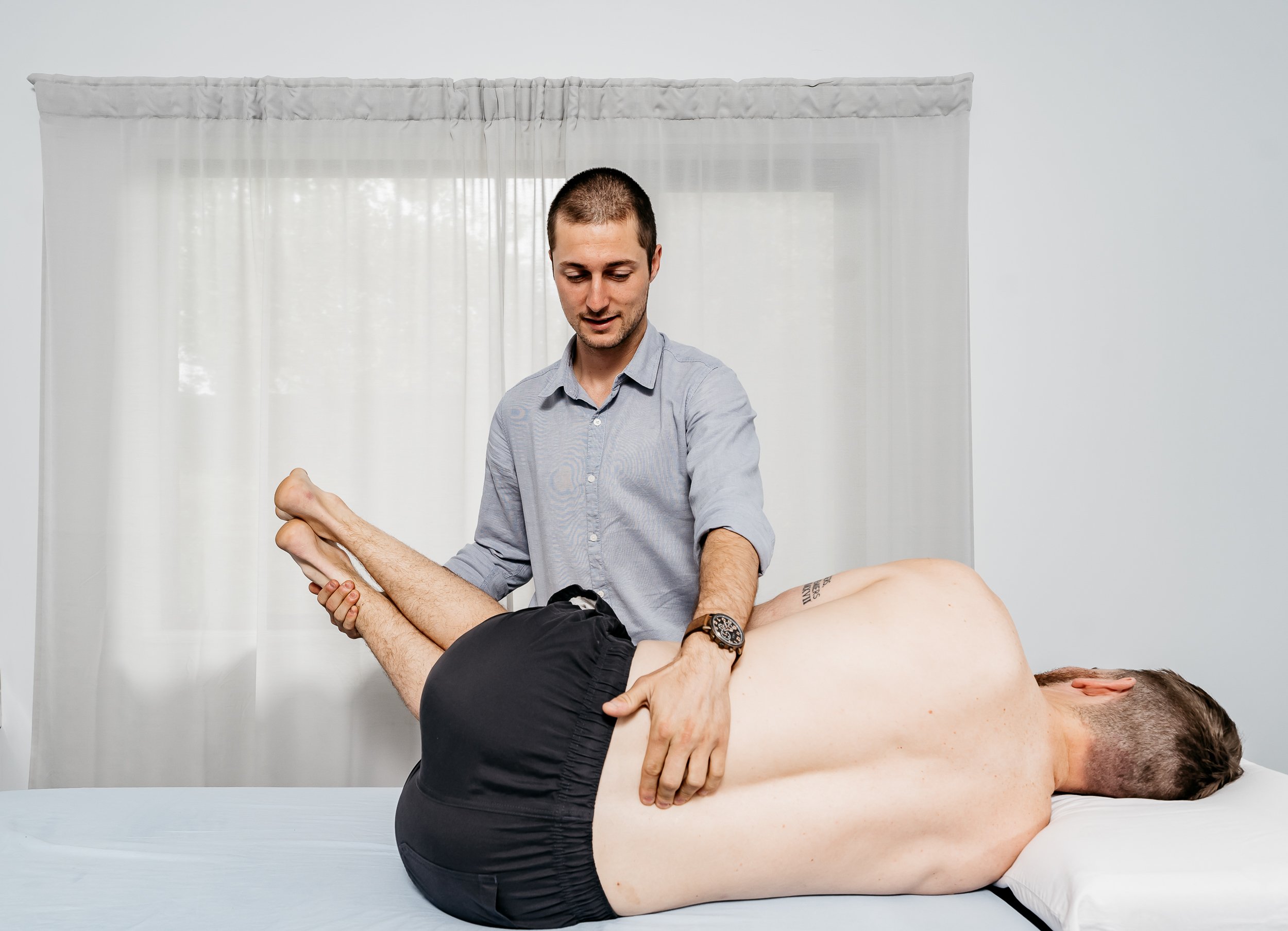"I've slipped a disc in my lower back. Can you help me?"
Suddenly hurt your back! Someone told you you’ve slipped a disc! Oh no! Maybe you “Dr Googled” the terms it and found a ton of information that has you really worried - some of the images might really have dialled up your worry!
“Slipped disc” is still a commonly used phrase to describe a problem of acute pain, generally in the lower back. It does invoke a disturbing mental image of what might be wrong with your back doesn’t it? One thing I can guarantee is that you cannot “slip” a disc - it simply can’t happen. Using correct terms to describe what might be, or is going on, can be a factor in reducing the perceived threat and this can decrease your pain response. Discs can certainly become injured and cause pain but this is more accurately called a disc bulge, or protrusion, or herniation, or prolapse, or extrusion. When I write that list, I can see how these terms too might cause an increased threat and pain response, particularly if you have listened to someone’s “horrendous” experience of their disc injury, or you have consulted Dr Google again.
What I like to do when talking to patients about a disc injury is to use the analogy of an ankle sprain. Nearly everyone has had one and can relate to this, and fortunately most have had just a mild one that bothered them for a few days to a week. I say to patients that there is a big spectrum of ankle injuries, some are really minor even though at the time of injury it felt very dramatic. There may have been some swelling and some bruising, they may have limped for a few days and then over the course of the week, it returned to normal and there was no more pain. The majority of ankle sprains are like this. Some ankle sprains are more severe though and they can cause pain and reduced movement for several months. These cases will typically have had a scan done which shows some significant tissue damage that requires longer to heal and occasionally, even surgery to help repair. These more severe cases are also the minority of ankle injuries. And within the spectrum of mild injury through to the severe, there is a wide spectrum of sprains - it isn’t a bell curve though, there are many more down the mild end of the spectrum than the middle or the severe end.
Acute or sudden disc injuries are just like this. There is a big spectrum of injury with the majority causing only a minor problem, even though there might be considerable pain in the beginning. The more severe disc injuries are accompanied by some other signs and symptoms that we can assess. We sometimes refer for a scan if we think it will alter the advice and treatment we offer, or may need referral to a specialist (not commonly needed).
The other great piece of information that I tell people is just because there is a disc injury now, doesn’t mean that they are going to have ongoing problems with their back - disc injuries do heal. With correct diagnosis, treatment, rehab and management, you may end up with a healthier back than you had before you were injured.
If you experience sudden onset of lower back pain, be assured that the vast majority of people experiencing this completely resolve, some with help from allied health, GPs and specialists and some without - with time, natural resolution will often occur. If you’re struggling with pain and limited movement, then come in and see us. We can give you a diagnosis and plan with you to manage this episode to suit your individual needs. All practitioners at Eureka Health have expertise in the assessment, treatment and management of acute and persistent lower back pain so make a booking here if you are experiencing lower back pain.
You might like to also read this blog about “You are NOT your scan”.
Written by Anthony Rogan, Osteopath & Director at Eureka Health


